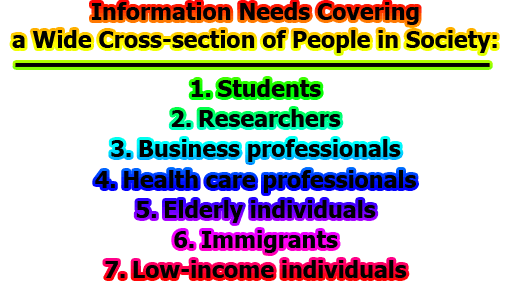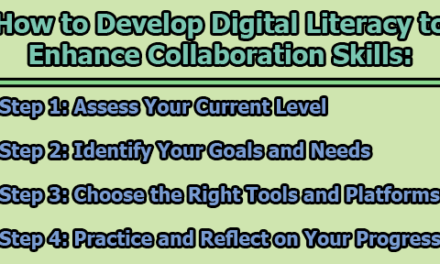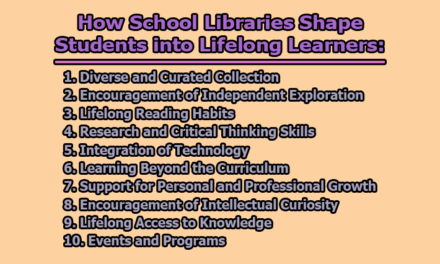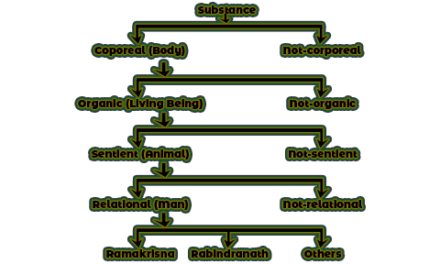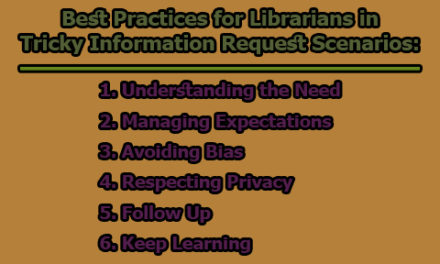Information Needs Covering a Wide Cross-section of People in Society:
In today’s increasingly connected and digitized world, access to information has become more important than ever. Information needs to cover a wide cross-section of people in society, including individuals, communities, businesses, and government organizations. Information needs can range from basic needs, such as access to healthcare information, to more complex needs, such as access to data and research for businesses and academic institutions. Information needs can vary widely across different segments of society. Here are some examples of the types of information needs that might be relevant to different groups of people:
- Students: Students may need access to educational resources, such as textbooks, journal articles, and online databases, to support their studies. They may also need information about career opportunities, internships, and job placement services.
- Researchers: Researchers may need access to scholarly publications, data sets, and research tools to support their work. They may also need information about funding opportunities and research partnerships.
- Business professionals: Business professionals may need information about market trends, industry regulations, and competitive intelligence to inform their decision-making. They may also need access to professional networks and training resources.
- Healthcare professionals: Healthcare professionals may need access to medical research, patient records, and clinical guidelines to support their work. They may also need information about new treatments, drugs, and medical technologies.
- Elderly individuals: Elderly individuals may need information about retirement planning, social security benefits, and health care resources. They may also need information about senior centers, community events, and volunteer opportunities.
- Immigrants: Immigrants may need information about language classes, job training programs, and legal services. They may also need information about cultural events and community resources.
- Low-income individuals: Low-income individuals may need information about social services, such as food assistance programs, housing resources, and job training programs. They may also need information about financial planning and budgeting.
In conclusion, information needs to cover a wide cross-section of people in society and is essential for personal, social, and economic development. Meeting these needs requires a collaborative effort and a commitment to equity and inclusion to ensure that all individuals and communities have access to the information they need to thrive.

Library Lecturer at Nurul Amin Degree College

